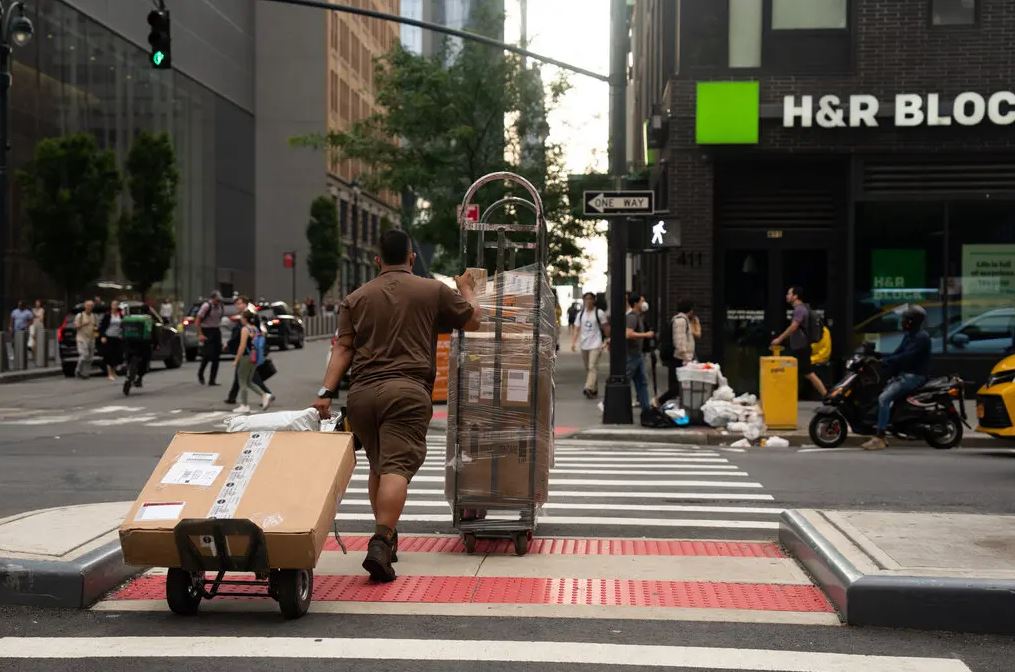Announcing a preliminary agreement on a five-year contract with the union representing more than 325,000 of its U.S. employees, United Parcel Service took a major step towards avoiding a possible strike on Tuesday.
According to a June report from the union, the International Brotherhood of Teamsters, 97% of UPS workers who participated in a ballot approved a strike after the existing contract expired on August 1.
The potential strike has threatened to dampen economic activity, especially in the e-commerce sector, since UPS processes nearly a quarter of the tens of millions of items that are sent daily in the United States.
According to the union, the deal will be voted on by rank-and-file members from August 3rd through the 22nd, and representatives from more than 150 Teamster locals will gather on Monday to examine the pact.
Talks had stalled in early July, mostly on the topic of part-time wages, but they picked back up on Tuesday morning.
In advance of its second-quarter results conference in early August, the business claimed it could not comment on the monetary worth of the acquisition.
The Teamsters have said that existing full- and part-time UPS workers covered by the union would earn a $2.75 this year and a $7.50 rise throughout the length of the contract as a result of the preliminary deal.
Full-time delivery drivers will now make $49 an hour, while the minimum wage for part-time workers would increase to $21 an hour from the current $16.20 an hour. After four years, the average hourly wage for a full-time driver is $42.
The corporation has also promised to hire part-timers for 22,500 unfilled positions and create 7,500 new full-time union employment. The corporation has said that part-time personnel are necessary for handling peaks in business both daily and during peak seasons, with many part-timers eventually being promoted to full-time positions.
The union had argued that the company’s outstanding success during the pandemic warranted large pay increases for employees, as seen by the seventy percent increase in net adjusted profits between 2019 and 2020.
More than half of the workers in the United States are part-time, and the Teamsters union has asserted that they are paid “near-minimum wage” in many locations.
The parties’ resolution of the perhaps most controversial issue, the creation of a new class of workers under the previous contract, set the way for an agreement weeks ago.
UPS said the policy change was made so that employees may split their time between package sorting and driving on the weekends in order to meet the rising demand for Saturday deliveries.
However, according to the Teamsters, the hybrid plan was never implemented, and instead, the new group of employees drove full time from Tuesday through Saturday for less pay than regular drivers. According to the corporation, some employees worked double-duty before and some Saturday drivers earned roughly 87% of the basic wage of other drivers.
The preliminary deal calls for the elimination of the lower-paid category of drivers and the conversion of those who drive Tuesday through Saturday to regular full-time drivers.
To meet the increased demand on Saturdays, the agreement also states that no driver will be expected to work on a sixth day outside of their normal schedule.
There were other non-monetary problems, such as heat safety, on which the parties might agree. Starting in January, all brand-new vehicles will be required to have air conditioning, and all pre-existing trucks will have extra fans and venting installed as part of the planned contract.
In an April earnings call, UPS CEO Ms. Tomé said that the two parties were in agreement on many critical points and that observers should not be distracted by the “great deal of noise” that would inevitably occur prior to the completion of a purchase.
If the agreement is approved, it would eliminate a major danger to the U.S. economy. Economists believe that a strike by UPS workers would have made it more difficult for firms to send products on schedule, and that the consequent limits in supply chains would have likely fuelled inflation at a time when it was beginning to show signs of easing.

